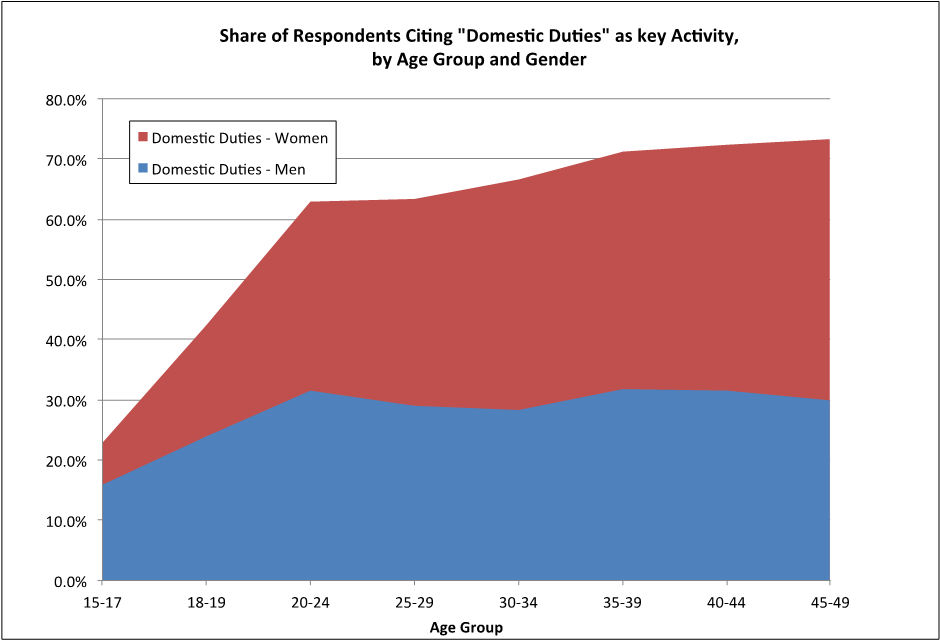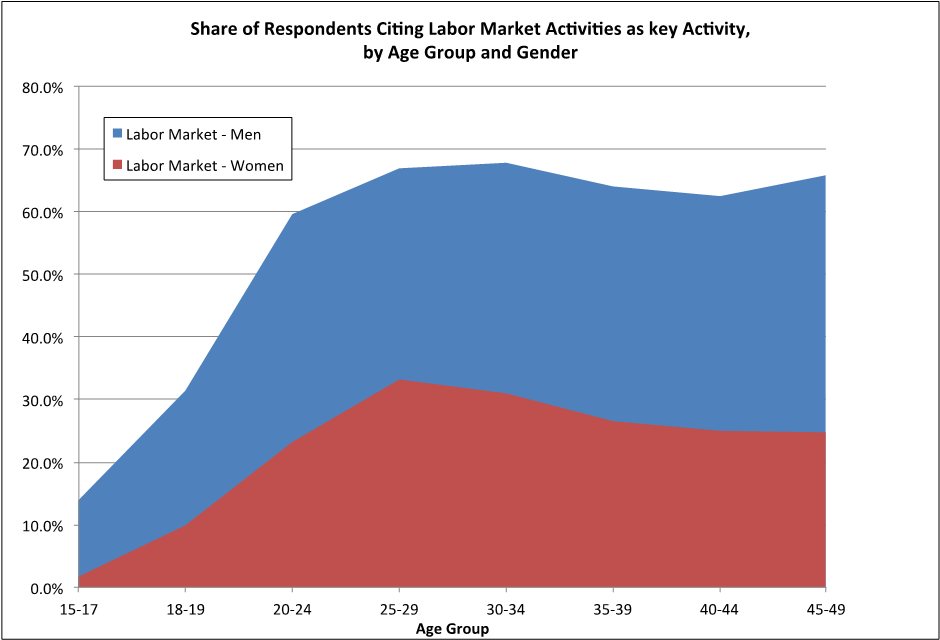Care and household work constitutes an important pillar in the socio-economic development of society
Care and household work constitutes an important pillar in the socio-economic development of society. Those doing this labour look after and teach our children and they take care of our elderly, health, and wellbeing. Much of this work is unpaid and happens at home where mothers breastfeed their babies, home-cooked meals nourish and bring families together, our sick and elderly find comfort, and clean clothes and domestic environments keep us healthy, proud, and happy. Often not included in national statistics, the direct value production of the care sector has been estimated to be in excess of half of the UK’s national output, the equivalent to 39% of India’s GDP, and more than 35% of Australia’s GDP. The indirect value of these services is hard to estimate: caring is after all what ties us together.
While much of the unpaid care and household work substitutes for access to quality and affordable social services and infrastructure, it is not always recognized as work. In Samoan statistics, for instance, this kind of work is described as “domestic duties.” Globally, most of this unpaid care and household work is done by women: women spend at least two and half more time than men carrying out unpaid care and household. Although time-use data is not available in Samoa, a recent survey among people aged 15-49 suggests that here too this work is disproportionally done by women.
Gender differences in time dedicated to unpaid care and household work is an important reason for women’s socio-economic and political disempowerment. Ignoring gender equality, which is a fundamental human right and a sustainable development goal on its own, also prevents an economy from realizing its full potential, including in terms of growth. In Samoa, for instance, bridging the gender gap in labour force participation could bring as many as 19,935 new workers into the labour force, which could boost GDP by as much as 27%.
Currently, only 31.5% of working-age women are in the labour force, compared to 55% of men. At least a part of the explanation is that their household and care labour prevents them from participating in the labour market. When asked about their main activities in the seven days prior to when this survey was conducted, the majority of women (60.5%) cited “domestic duties” but only a small fraction (23.4%) cited an activity associated with being in the labour force (i.e., being an employer, an employee, self-employed, working in subsistence mainly for sale, and looking for a job). In contrast, men were less than half as likely to cite "domestic duties" and almost twice as likely to cite activities associated with being in the labour force. Across age cohorts, the gender gap in “domestic duties” widens for groups older than 25-29 (Figure 1). The peak fertility rate for women in Samoa is also 25-29, which suggests that having children might be pushing women further out of the labour force and into “domestic duties.” The long-lasting effects of this dynamic are manifold and likely constitute a systemic source of gender inequalities in many other outcomes in the socio-economic and political spheres.
Promoting gender equality on all economic, social, and political fronts will help with “transforming Samoa to a higher growth path.” Recognizing domestic duties as work and developing a professional social care sector could, for instance, offer the country the desired opportunity to diversify its economy and improve labour market conditions. The number of workers would increase by recognizing caregiving as a professional career, while the development of such a sector would loosen the constraints on women’s time and enable their full participation in the labour market and other dimensions of Samoan society.
Figure 1 – Selected Main Activity in the Last 7 days (by gender and age cohort)
Note: Labour Market Activities include: being an employer, an employee, self-employed, working in subsistence mainly for sale, and looking for a job.
Source: Author's compilation based on data from Samoa Demographic Health Survey – Multiple Indicator Cluster Survey (Samoa DHS - MICS) 2019 -2020: Survey Findings Result.
By Heloisa Marone - Economist - UNDP Samoa

 Locations
Locations




